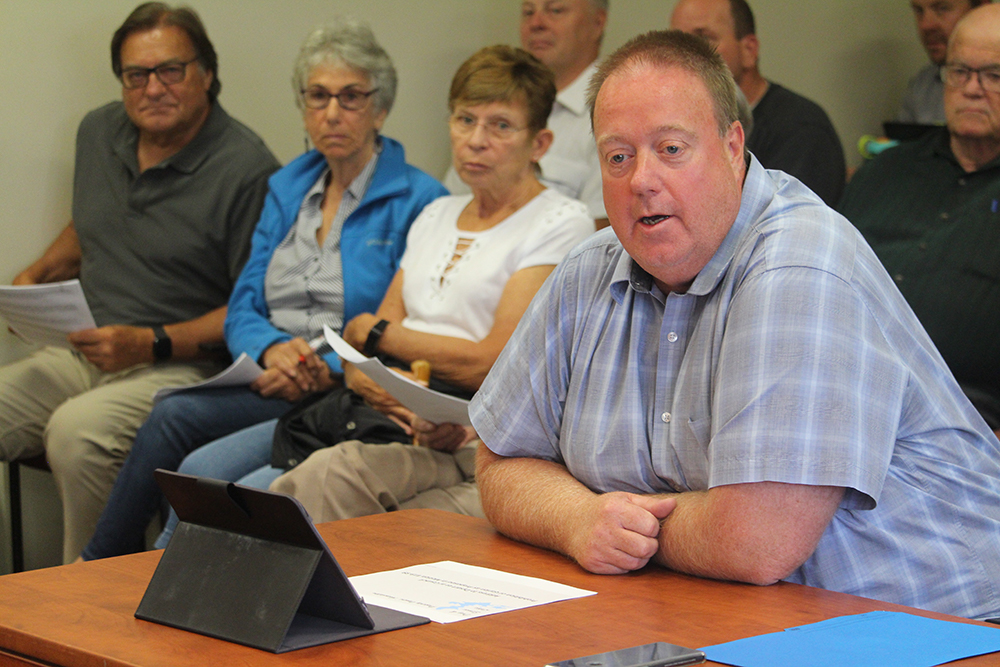Dysart et al is maintaining a ban on the toxic herbicide Garlon after area lake associations came out in force to protest delaying the ban.
Council voted 5-2 Aug. 27 against an environment committee recommendation to delay a Garlon ban until the end of 2020. The vote means the municipal’s prohibition on the chemical, which came into force in April, remains in effect.
People filled the council chambers to address the issue, including two delegations from lake associations preceding the vote. Percy Lake Ratepayers’ Association president Anna Tilman argued for keeping the ban in place.
“Haliburton is beautiful. We love it, we want to see the watersheds protected. That is what will give the area economic development,” Tilman said. “To know this is a place you can come and know the environment is protected.”
Mayor Andrea Roberts, deputy mayor Patrick Kennedy and councillors Walt McKechnie, John Smith and Nancy Wood Roberts voted against the recommendation to delay the ban. Councillors Larry Clarke and Tammy Donaldson voted in favour.
The chemical is known to be harmful to aquatic life and has come under scrutiny, with Hydro One using it to manage brush near power lines. Lake associations have raised concerns with the substance getting into the water system and harming lake health.
In a presentation to the environment committee after the ban was in place, Hydro One argued it takes great care in its use of Garlon. It said alternatives, such as heavy machinery, are not more environmentally-friendly due to gas use.
Councillors defended their consideration to temporarily remove the ban. Roberts said it was not an issue she had heard discussed before this year and expressed concern about Hydro One’s fulfilling its responsibility to maintain power lines.
“There are always things that are bad for the environment that sadly, living in the world that we live in, still do,” Roberts said. “We’re trying to make some steps in this municipality to slowly, but surely, go forward.”
The environment committee made the recommendation Aug 8. It stated Hydro One should be instructed to find an alternative that is ecologically and medically acceptable. It would also create a setback for Garlon to 300 metres from any water body.
Clarke said the ban would not stop Hydro One from using a different toxic herbicide and that the overarching issue of such chemicals would need to be addressed.
“We have to think in terms of how we’re going to manage the transition,” Clarke said. “That we’re not disadvantaging somebody because we have to do something immediately.”
Smith said Hydro One could take advantage and accelerate its Garlon use if the ban is delayed. He said he saw Hydro One workers using the chemical on Kennisis Lake Road Aug. 7, with the ban in effect, trying to address a large area before the ban was fully implemented.
“They’ve demonstrated flexibility in terms of the speed in which they can act,” Smith said. “The Municipal Act gives us the authority to take steps like this.”
Hydro One could not be reached for comment before press time.
Not every local organization supports the ban. Eco Choice Pest Control has presented to council and argued though they disagree with the broadcast application of herbicides, a full ban is unnecessary.
“Garlon is a good option for controlling certain species of invasive plants,” the Haliburton business said. “Invasive species are an increasing reality and a total Garlon ban may leave us with no way to combat them.”
Council also directed its environment committee to explore a broader action against pesticides and herbicides.





